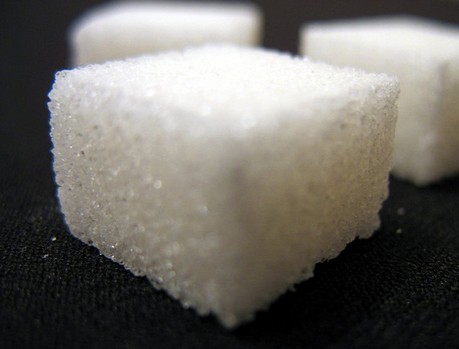What are Carbohydrates?
Carbohydrates are sugars and starches known as saccharides and they provide energy for animals and humans, as well as the cellulose that makes up the structures of several plants.
This compound is basically made up of carbon, hydrogen and oxygen formed by plants, and has a chemically formula of Cm(H2O)n. For instance, glucose, a simple sugar is made up of six carbon atoms, 12 hydrogen atoms and six oxygen atoms. It has the formula C6(H2O)6 and is shaped like a hexagon; other forms of writing it are C6H12O6 and H-(C=O)-(CHOH)5-H.
Starch
A huge starch molecule can be made of several tiny sugar molecules that are attached together and then form a long chain. The body can either use carbohydrates right away or it may use it later by first converting it into fat. There are two main types of carbohydrates, the simple sugar or monosaccharides and the complex sugars which are also called as polysaccharides.
Monosaccharides
Simple sugars or monosaccharides are mostly found in dairy products and fruits, and can be easily digested by the body. This type of sugar is often found in refined and processed foods such as white bread, pastas and white sugar. There are three kinds of monosaccharides: Glucose which is the type of sugar that the body uses to form energy; galactose that found in dairy products and sugar beets; and fructose which is also called as fruit sugar as it is found in fruits.

Disaccharides
It is essential to know that simple sugars (glucose, galactose and fructose) can form different combinations to become “two sugars” or disaccharides.
Disaccharides include Lactose, a milk sugar, which is basically made up of glucose and galactose molecules. Individuals who can’t digest this sugar properly are known to be lactose intolerant. Sucrose or table sugar is composed of fructose and glucose molecules. This type of sugar is used when baking or cooking as it is a white granular or powdery substance easily found in supermarkets. Maltose or malt sugar is produced during the malting of cereals such as barley.
Simple sugars are easy to digest and are water-soluble. Glucose and fructose molecules are absorbed by the bloodstream easily via the small intestine. This is the reason why people with metabolic syndrome or diabetes need to have a careful watch with their blood glucose level.
Foods that contain Complex carbohydrates
Complex carbohydrates are commonly found in whole grain breads, vegetables (cellulose), brown rice, pasta, legumes and rice. This type of carbohydrates takes a longer time to be digested by the body. Foods with unrefined grains such as brown rice hold complex carbohydrates; unlike refined grains, such as white rice. This is due to the refining process that removes some of the grain’s nutrients and fiber.
What happens to Carbohydrates in the body
Carbohydrates are digested by the liver, which breaks them into the simple sugars (or glucose to be exact) that are responsible in stimulating the production of insulin in the pancreas. The main function of insulin is to get the sugar into the cells of the body and be used as energy. Monosaccharides and polysaccharides can affect the production of insulin differently. The insulin levels spike faster when digesting simple carbohydrates and the carbohydrates are used up faster for energy. This is the reason why people tend to turn to candy bars to have quick supply of energy. Once the body produces more glucose than what is needed, glucose will be stored in the muscle cells and liver as glycogen, and this will only be used when the body is in need of an extra burst of energy. Leftover glycogen that was not stored in the liver or muscle cells, will be stored by the body as fat.
The Institute of Medicine recommends suggests that around 40% to 65% of an adult’s dietary energy should be from carbohydrates. The World Health Organization (WHO), on the other hand, suggests that individuals need to have around 55% to 75% of carbohydrate intake. In order for the body to function properly, certain amount of carbohydrates needs to be taken on a daily basis. Insufficient intake could result to muscle cramps, fatigue and poor mental function. The body can also produce energy from proteins and fat alone but this is only possible for a short period of time. Avoiding carbohydrates can affect the body in an adversely manner.
Importance of Carbohydrates in the Body
Glucose, which is the main source of energy in the body, is constantly replenished by simple carbohydrates. When the body receives a signal of glucose shortage, it will dig into its glucose energy reserve to ensure sufficient amount of blood sugar levels in the body. Glucose is stored mostly in the liver as well as in muscles, as molecules known to be Glycogen. These small molecules are then broken down and will be released in the blood stream.
Carbohydrates also contain fiber that keeps the bowel functioning smooth and aids in reducing the risk of digestive system complications. Another reason why carbohydrates should be included to one’s diet is to prevent ketosis from occurring. Ketosis is a very serious condition that happens when the body is receiving little amount of carbohydrates, resulting in raised levels of chemicals in the blood known as ketone as the body turns to fat for energy. Carbohydrates also help in the ingestion of other kinds of nutrients.

The body prefers the usage of glucose as the main source of energy for daily activity. Muscles need glucose in order to function and move; this goes the same with other organs including the brain. Carbohydrates should come from healthy sources such as fruits, vegetables and whole grains.
References and further reading
Carbohydrate photographs: Sugarcube by Uwe Hermann, Low Carbohydrate meal by Dabinsi.
Wikipedia, MedlinePlus; MedlinePlus Carbohydrates Page; Centers for Disease Control; MayoClinic.

